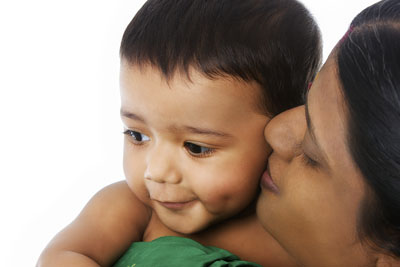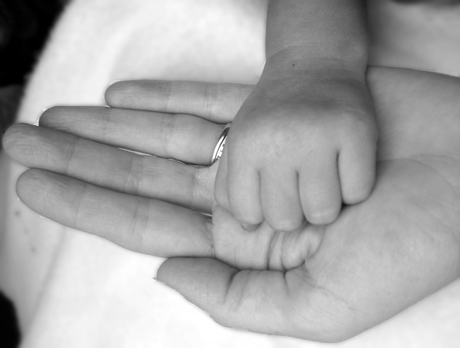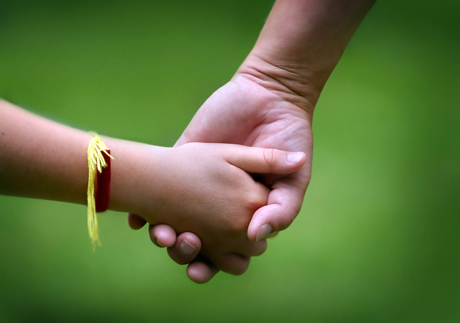This article was originally published here:
By Nayantara Mallya
Six years ago, we made a trip to meet a very little baby, who is now almost four feet tall and almost in first grade. It was the culmination of a dream, and it feels so good to have gone ahead and adopted our second child (Read, Child Adoption Process In India: Explained).
 Our elder daughter had just turned three, and I found myself longing for another baby, much to my surprise, since I had sworn during the sleepless nights of her infancy that we’d be crazy to think of having one more. When I brought it up with my husband, it was already certain that we would either adopt a child, or stick to having only one child. The question that helped me decide was, “When I’m eighty and dying (!), will I regret not adopting?” That sealed it!
Our elder daughter had just turned three, and I found myself longing for another baby, much to my surprise, since I had sworn during the sleepless nights of her infancy that we’d be crazy to think of having one more. When I brought it up with my husband, it was already certain that we would either adopt a child, or stick to having only one child. The question that helped me decide was, “When I’m eighty and dying (!), will I regret not adopting?” That sealed it!
Is loving equally a challenge?
A question we have been asked often, especially during the decision-making was “Can you love both equally?” To me, it has never made any sense. In any family with more than one child, that question is going to arise. Each child is different and deserves parenting tailored to their personalities, needs and issues; but it’s always going to be a challenge keeping it ‘equal enough’. Find me any pair of grown-up siblings who will agree that their parents loved them one hundred percent equally! Go on!
I think that question is based on the concept of “us” and “them”. As in, a child born from my own body is mine and belongs to me, but a child born to another woman is hers and I can’t possibly love him or her the same way. Somehow, we have never subscribed to this line of thinking. Being able to love and parent a child should not have anything to do with the way he or she joined the family. Raising a child is a lifetime journey; it seems pointless to harp on the child’s origins and history and to say one can’t love a child enough because he didn’t grow in my own body. In fact, there is no such thing as an adopted child. Once the child joins the family, it’s done, why label him or her for life? Our son is our son, not our adopted son. In fact, we strongly believe in destiny – our son was meant to come to us.
Having a biological daughter first has actually helped, because of the challenges we’ve faced raising her. Yes, there are issues, feelings, experiences specifically connected with adoption that need to be dealt with, but with balance. It’s not good to pathologize everything the child goes through as being connected to adoption. Neither is it ok to buy into the “everything is the same, there’s no difference” myth that Indians bandy about.

Most challenges we encountered raising our children were resolved when we corrected our parenting, relationships, communication, and ironed out our own muddled lives, legacies and feelings. After all, there are no problem children, only problem parents.
Embracing and celebrating differences
Other worries brought up by those ‘concerned’ for us were about how the child would look, behave, perform, turn out and so on. Again, I think this is about a fear of being different, or having to deal with issues that are not commonplace or the ‘norm’. I guess coming to terms with differences is what makes the difference! It’s really not necessary, for instance, that just because I gave birth to our daughter, that she’s going to be a clone of my husband and me, and a chip off the old block! I think kids need us to let go of them and allow them to be who they’re supposed to be…they don’t have to look like us, achieve like we did (or didn’t!) or conform to our standards and expectations.
We’re open about our son’s story with our kids, but we avoid harping on it. Storybooks, albums, mementoes are kept available, and we privately celebrate the day we met him, and his homecoming day. We also tell his story in the larger context of our family’s stories. It’s not about him being more special or lucky or born from our hearts! I find it absurd to gloss over the fact that he was born from a woman’s womb, just like every other child. I feel anger when people advise us not to tell him that “he’s not our own child” or that he doesn’t “belong to us”. Since when did kids belong to their parents? I feel pity for people who cannot comprehend that you can love a child who didn’t grow inside you, and that that child was ‘born’ in our minds, again just like every other child who is planned for and wanted.
 It has helped to remember that young children’s minds are fresh without the imprinting of prejudice and societal programming about morality, stereotypes and norms. Most discomfort we adults feel about adoption is not initially there in children’s minds at all. So, it’s right that our kids grow up knowing their stories in an age-appropriate fashion.
It has helped to remember that young children’s minds are fresh without the imprinting of prejudice and societal programming about morality, stereotypes and norms. Most discomfort we adults feel about adoption is not initially there in children’s minds at all. So, it’s right that our kids grow up knowing their stories in an age-appropriate fashion.
It’s been important to us to continue celebrating our daughter’s story. Every child’s birth story is special, along with additional facets like adoption, IVF, surrogacy, C-section or what-have-you! I dislike it when celebrity adoptive parents like Sushmita Sen put out statements that imply being born and raised by the biological mother and father is boring! How ridiculous!
As an adoptive family, I have realised our responsibility to develop a thick skin, to stand up for our family and educate people where possible about adoption. When you’re different, you have to be proud about that difference, and remember that everybody is different. Most families look very ‘normal’ from the outside, but everyone has their issues. You just deal with the cards life deals you in the best way you can.



A Family starts with a baby. Surrogacy Nepal helps to start your own family with our guaranteed surrogacy program. The complete package helps you to get baby.